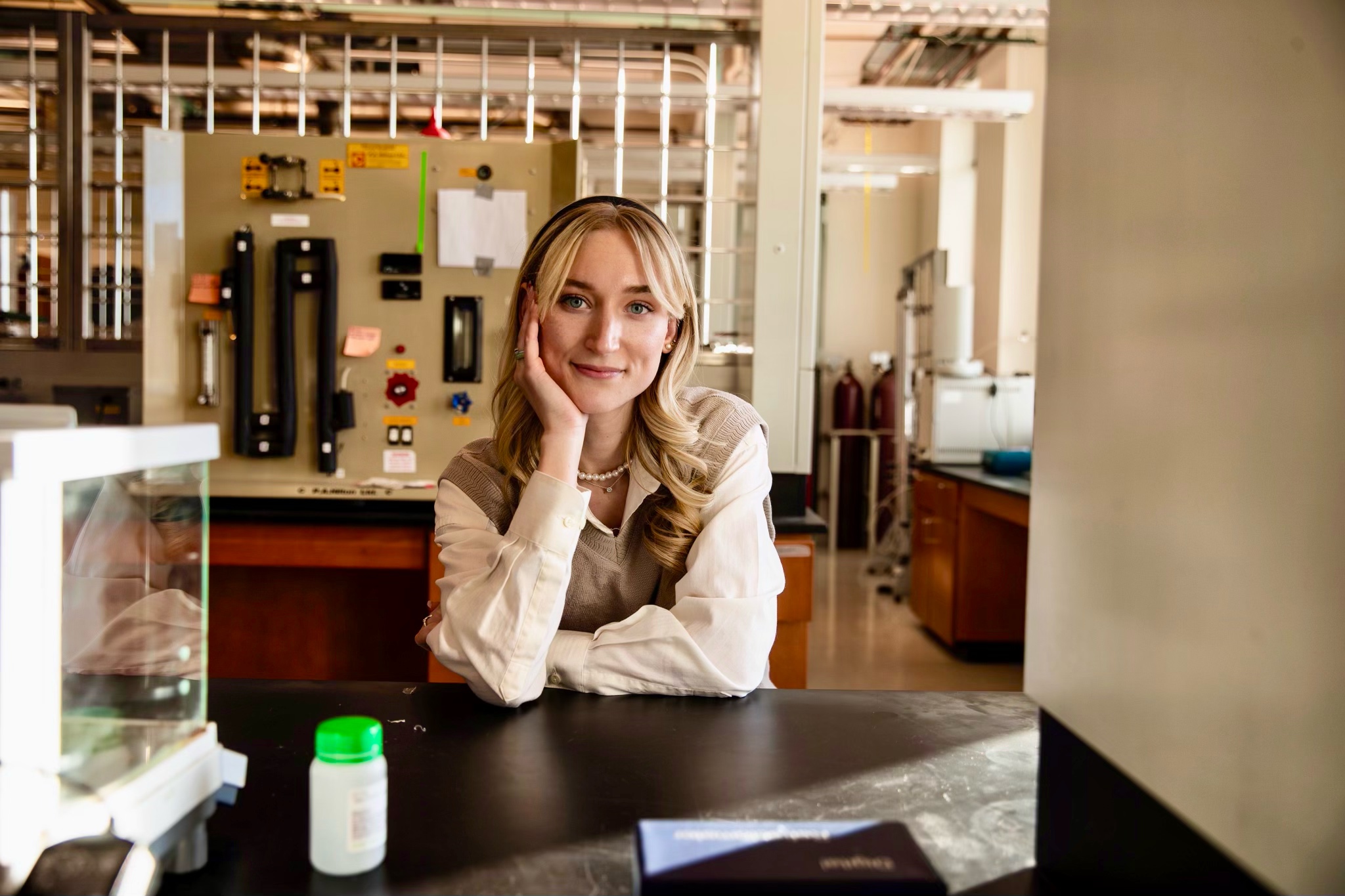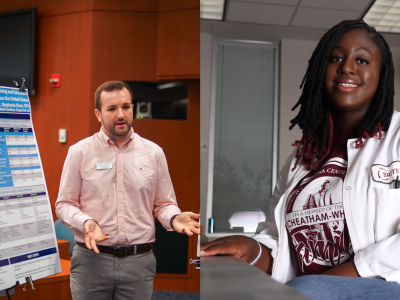May 1, 2024

Grace Williamson, Ph.D. candidate, found inspiration and purpose during her gap year experience in 2017. She grew up in Iowa City, IA, ten minutes down the road from the University of Iowa, where she planned to attend college.
Although she was looking forward to her future studies, her Norwegian heritage valued a gap year between high school and college, and she was anxious to have a global experience. Little did she know that the next year would impact her Ph.D. research years later.
“My gap year was instrumental in leading me to where I am today,” Williamson said.
She lived in Hønefoss, Norway, attending Ringerike Folkehøgskole where she chose the track “Global Solidarity”. She volunteered with the local Red Cross to serve Syrian refugees and traveled to Kenya and India to serve local schools and orphanages. For her, the Kirigiti Home for Girls in Kenya particularly stood out.
“It was really eye opening to see the barriers that girls face in education, especially in STEM,” she said.
Today, she works in the Division of Pharmacoengineering and Molecular Pharmaceutics (DPMP) for Kristy Ainslie’s, Ph.D., lab researching ways to make Orthopoxvirus vaccines more accessible to women in largely underserved areas around the world, such as Kenya. These vaccines fight against “pox” viruses such as smallpox and mpox (monkeypox).
“Grace is an exceptional researcher who is making pioneering strides in vaccine research,” said Ainslie. “Her blend of scientific expertise and humanitarian spirit makes her a truly valuable asset to my team and the scientific community.”
When Williamson is working in the lab, she has to consider the scalability of manufacturing and how the vaccines will be stored.
“You can do cool science in the lab, but if it’s not actually translatable, then it’s not really helping people,” she said.
Her goal is to develop an Orthopoxvirus subunit vaccine, which would be a safer option for those who are immunocompromised and for pregnant women. In addition, the vaccine would be thermostable to ensure easier storage and less expensive distribution.
Williamson hopes her research will lead to improving not only the accessibility of Orthopoxvirus vaccines but also the development of other vaccines. “If we had more thermostable vaccines, then we could improve access for all,” she said.
Latest News

Rural Health Scholars dream to make a difference

Lisa Tarantino appointed as new Assistant Dean for Research


